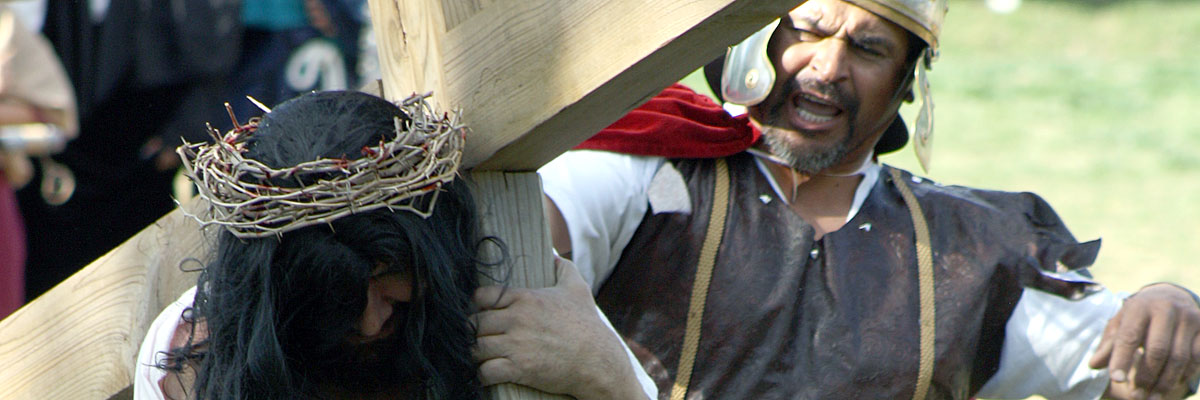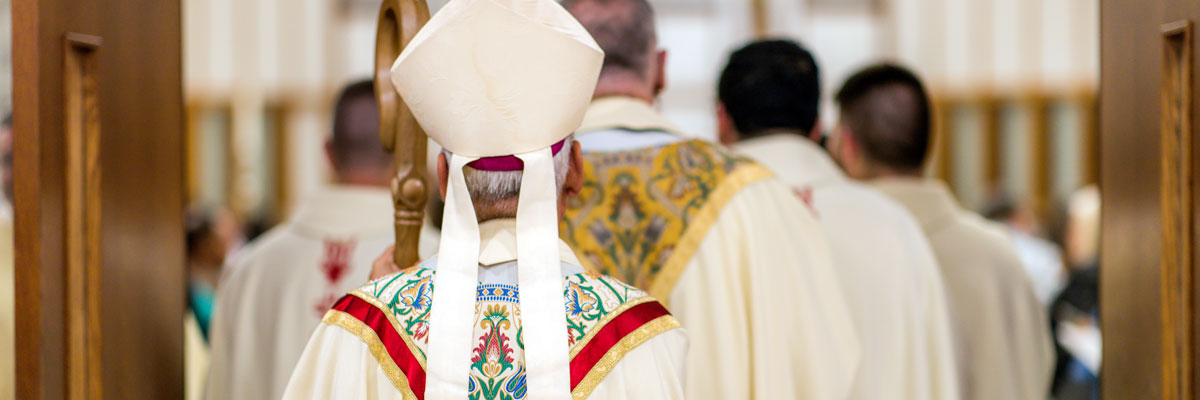Official Website of the
Catholic Diocese of Little Rock
2025 Fifth Sunday in Ordinary Time, Year C
Published: February 9, 2025
Bishop Anthony B. Taylor preached the following homily at Our Lady of the Holy Souls Church in Little Rock on Saturday, Feb. 8, 2025, and St. Scholastica Church in New Blaine on Sunday, Feb. 9, 2025.

Bishop Taylor
A few years ago, I visited the Shrine of the Virgin at San Juan de los Lagos in the state of Jalisco, Mexico, and I was astonished by how many people were there on a normal Saturday in January.
It wasn’t Mass time and yet the Church was packed with people praying, and by looking at them, it was clear that they really were praying. I’m sure 1.) some were there to pray for a miracle; 2.) others to fulfill a promise and thank God for favors already received, as evidenced by the thousands of votive offerings in the rooms off to the right side of the Church; and 3.) still others had come, like me, simply to pray, to spend time with our Lord and his Blessed Mother.
These weren’t just pious old women or priests and bishops. Most were young families: strong, hard-working young fathers with their equally hard-working wives and children. None of my three guidebooks to Mexico even mentions San Juan de los Lagos. The crowds pressing in on all sides were not tourists. They had come to listen to the Lord and to pray.
In today’s Gospel, that’s what Peter, James and John do. They leave their inheritance, their job, abandon their boats and the tools of their trade, their livelihood, even their families. They leave behind everything that was familiar and secure to follow Jesus, a man they’ve just met who makes them no promises and about whom they don’t yet know much, but in whom they know they’ve heard a call from God. You and I are called to do the same.
In today’s Gospel, we have the same thing: the crowds pressing in on Jesus to listen to the word of God. There were so many that in order to get a little space, he got into a boat, put out a short distance from the shore and continued to teach the crowds from the boat.
Notice which boat he got into: the one belonging to Simon Peter on whom he would one day found his Church. Then he does something highly symbolic that so astonished Peter, James and John that they left everything to follow Jesus. They were fishermen, probably — as was usual in those days — not so much by choice as by inheritance, tools of the trade passed automatically from father to son to grandson, each generation teaching the next.
Fishing was their heritage and their job, but not their vocation. A vocation is always a response to God’s call.
In today’s Gospel, we have their vocation story. Jesus has them lower their nets for a catch. They protest that they’ve been at it all night — the good time to catch fish — and have caught nothing. And now here they are, exhausted after fishing all night and short on sleep after listening to Jesus all day, and he wants them to lower their nets in daylight — when fish are more difficult to catch — and they catch so many fish that their nets began to tear, and their boats were about to sink.
Crowds of fish pressing in on them, like the crowds pressing in on Jesus to hear the word of God and the crowds pressing in to pray to God at San Juan de los Lagos. Jesus tells them: from now on, you will be catching men. That’s their vocation.
This same Jesus is present here with us today, and each of us has a vocation too, a role to play in God’s ongoing work of salvation, for which he has empowered you by means of the sacrament of confirmation. He has given you the seven gifts of the Holy Spirit: wisdom, understanding, right judgment and knowledge to discover what he wants you to do, both short-term (in the events of each day) and long-term (your vocation in life); reverence and fear of the Lord to enable you to say “yes” to his will each day and for your entire life, and then the courage to act on what you are beginning to discover — even if initially not yet with complete clarity — to be God’s call in your life.
In today’s Gospel, that’s what Peter, James and John do. They leave their inheritance, their job, abandon their boats and the tools of their trade, their livelihood, even their families. They leave behind everything that was familiar and secure to follow Jesus, a man they’ve just met who makes them no promises and about whom they don’t yet know much, but in whom they know they’ve heard a call from God. You and I are called to do the same.









